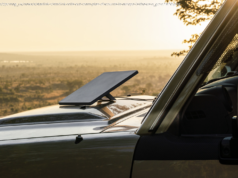I have an aversion to karaoke after the band I used to play in was entirely upstaged at a gig by a karaoke machine, but, as pastimes go, it remains a huge..
I have an aversion to karaoke after the band I used to play in was entirely upstaged at a gig by a karaoke machine, but, as pastimes go, it remains a huge market. And where markets are big, startups like to go.
Enter Finland’s Singa, which is building a digital karaoke service that, in its own words, wants to do for karaoke what Spotify has done for music. The Helsinki-based company has recently scored €1.75 million in seed funding led by Initial Capital, with participation from Tamares Holdings, Superhero Capital, Reaktor Ventures and Tekes.
“Over my 10 years in the karaoke industry running Karaoke World Championships, I worked with big and small karaoke companies all over the world, from Asia to the U. S., and gained insight into the industry and saw that while most other entertainment media were moving towards streaming, karaoke was still stuck in the 90s, ” Singa co-founder and CEO Atte Hujanen tells me.
“This was a huge disservice to karaoke singers and represented a massive opportunity for a company that understood both the industry and software-led disruption”.
To that end, Singa currently comes in two versions: For consumers, the Helsinki startup offers native iOS, Android, Web, Apple TV & SmartTV apps, which provide easy access to over 20,000 fully-licensed karaoke songs and what it describes as an immersive singing experience. For bars, restaurants, hotels and other entertainment venues, Singa offers a pro-version, marketed as a modern, fully digital, commercial turn-key karaoke solution in a single intuitive package.
“With Singa you no longer need DVDs, CDGs, downloads, expensive custom hardware or any other kind of unnecessary hassle, ” adds Hujanen. “Singa makes it easy to sing anytime, anywhere and on any device, for both consumers and for any venue providing a stage”.
In terms of competitors, the Singa CEO notes that YouTube is the world’s largest source for karaoke related content, but says that 99 per cent of the content is illegal or un-licensed at best. Smule, the heavily-funded San Francisco-based startup, has also seen success in the mobile karaoke space, while Israel-based Yokee has developed a similar offering and just recently sold to Canadian Stingray Digital for approximately $40 million. Chinese karaoke app Chang-Ba is a major local player and currently boasts around 30 million monthly active users.
“These players are not direct competitors, they are more focused on casual mobile-only experiences, audio/video filters and a heavy focus on social network-like features, ” he says.
Adds Hujanen: “The only thing we care about is providing the best singing experience. We don’ t focus on gimmicks, rather we wake up every day thinking how the singing experience can be improved. For instance, we are the only one’s who have truly digitized karaoke and gotten rid of the cringeworthy clichés of “old school” karaoke videos and graphics. Our content is rendered in realtime, which means it’s always optimized whether you’ re singing off your 70” 4k television or the screen on your internet connected toaster”.






